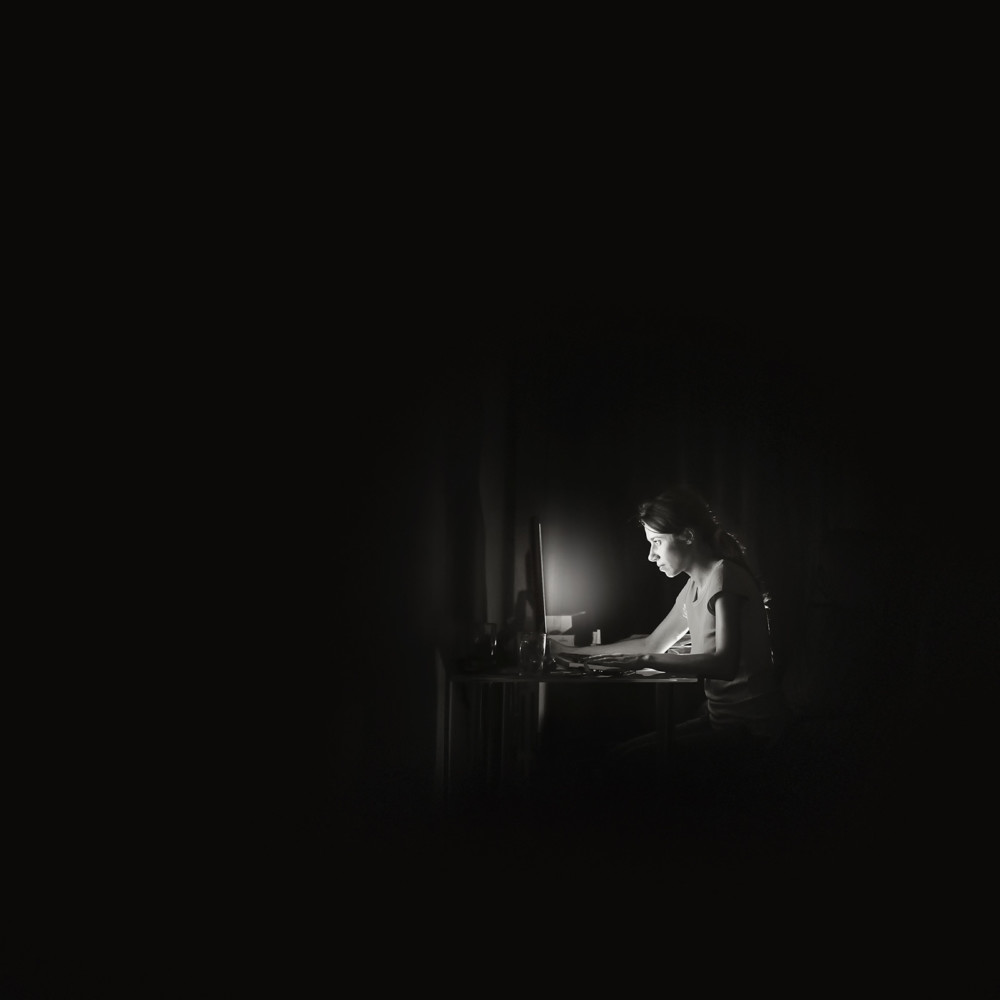By Rachel Gallaher
The Seattle Times
WWR Article Summary (tl;dr) Blue light from a computer screen is a color that humans see in the visible light spectrum. It is transmitted as a short wavelength, meaning it produces higher amounts of energy. But doctors say that shouldn’t necessarily be cause for alarm.
The Seattle Times
About two months ago, two of my colleagues showed up to work wearing identical new glasses.
When I made a joke about everyone going to see the same optometrist, I was informed that the specs were “computer glasses”, over-the-counter lenses that purportedly filter out a majority of the blue wavelength of visible light.
My co-workers started in on the supposed dangers of blue light emitted from digital screens, a list of ailments ranging from dry, itchy eyes and headaches to insomnia, retinal damage and increased nearsightedness.
I went immediately to my computer and spent the next hour descending into a rabbit hole of information so varied and conflicting that I ended up reaching out to several professionals in medical and scientific fields in an attempt to gain clarity.
Let’s start with blue light, the innocuous-sounding phrase that over the past few years has sent daily computer-users into a panic about their optic health.
Simply put, blue light is a color that humans see in the visible light spectrum. It is transmitted as a short wavelength, meaning it produces higher amounts of energy. But that shouldn’t necessarily be cause for alarm.
“A lot of the studies we’re hearing about claiming that blue light from screens is harmful to the eyes are based on tests done in extreme conditions,” said Will Pentecost, an optometric physician and owner of Seattle’s EYE EYE clinic. “They have people staring into very high amounts of blue light with few breaks for hours. It doesn’t mirror the actual conditions of someone working at their office computer or using a smartphone throughout the day. Going outside without sunglasses for long periods of time can be more damaging to the eyes.”
According to Pentecost, patients who come in complaining of headaches, blurred vision and itchy or dry eyes are often suffering from eyestrain, which, although it can be a result of working at the computer, is generally not the result of blue light.
“Someone working at the computer all day blinks about half as much as someone who doesn’t, and that, along with focusing your eyes at a single area for long periods of time can cause dryness, tiredness and irritation, Pentecost said. “But even dry eye can be complicated; it could be a symptom of underlying issues only an optometrist can find.”
One way to help alleviate digital eyestrain is the 20-20-20 rule, as noted by the American Optometric Association. Take a 20-second break to view something 20 feet away every 20 minutes.
As for computer glasses, Pentecost doesn’t recommend them unless a person has recently had a concussion or experiences chronic migraines, both of which can cause sensitivity to light.
Professor and researcher Dr. Jay Neitz agreed. A faculty member at the University of Washington’s department of ophthalmology, Neitz studies the biological basis of vision and vision disorders like macular degeneration, nearsightedness and colorblindness.
When talking about blue light, he said people should be concerned about its potential effect on their sleep more than anything else. “Melatonin is a hormone produced by the body that helps regulate a person’s circadian rhythms (when we wake up, when we fall asleep, when we experience hunger),” he said.
“Our bodies only produce melatonin at night, which aids in falling asleep. Looking at your phone in a dark room has the potential to interfere with this process.”
Another consequence of looking at your phone right before you go to sleep is that it can stimulate your brain. “Screen time is not conducive to sleep onset, not only due to light exposure, but because of the potentially activating nature of what you’re looking at,” says Dr. Nathaniel Watson, director of the UW Medicine Sleep Clinic and president of the American Academy of Sleep Medicine. “If you’re reading an email from your boss or watching a video that heightens your emotions, it’s going to take you longer to settle back down and actually fall asleep.”
To get recommended eight hours of sleep, he advises creating a calming bedroom environment (no TVs or computers), not drinking caffeine after 2 p.m., and if you wake up in the middle of the night, “do not reach over and look at your phone!” Like Neitz and Pentecost, Watson said that most smartphones have settings that filter the amount of blue light they emit, but he doesn’t necessarily recommend the glasses.
While my co-workers swear by their purchases (both say that the lenses have helped alleviate headaches), after wearing mine for a few weeks, I didn’t notice much of a physiological difference. Granted, I wasn’t suffering headaches or eye irritation in the first place, and I admit that I am guilty of browsing social media for at least 15 minutes before bed most nights.
In the end, all three doctors agreed that computer glasses can’t hurt your eyes, so if it makes you feel better to wear them, go ahead (the darker or more yellow-tinted, the stronger the filter), but keep in mind that it’s not likely that you’ll be blinded by the (blue) light.














































































































































































































































































































































































